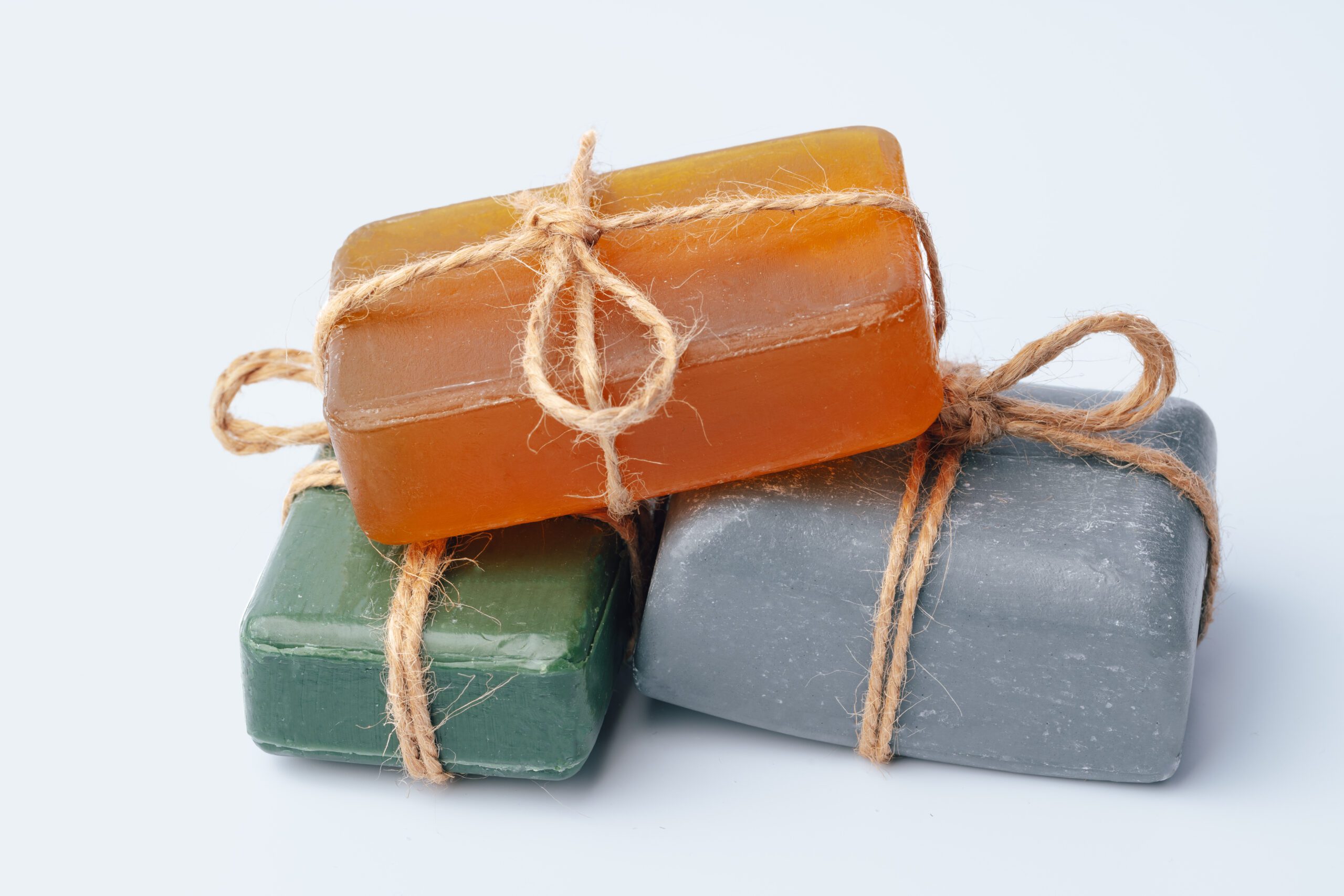
How to Sell Handmade Eco-Friendly Soaps and Bath Products
Welcome to the world of crafting and selling handmade eco-friendly soaps and bath products! In this exciting journey, you’ll learn how to turn your passion for creating unique, sustainable, and beautiful bath products into a thriving business.
Why Handmade Eco-Friendly Soaps and Bath Products?
In a world filled with mass-produced items, there’s something truly special about crafting your own eco-friendly soaps and bath products. The demand for eco-conscious, chemical-free alternatives is on the rise. People are becoming more aware of the impact of traditional soaps on the environment and their skin.
Crafting Eco-Friendly Soaps with Love
When you embark on the journey of crafting eco-friendly soaps, you’re stepping into a world where creativity and love are the primary ingredients. It’s not merely a business venture; it’s a passionate commitment to creating something that benefits both your customers and the environment.
The Essence of Handcrafting
Handcrafting eco-friendly soaps is an art, a science, and a labor of love all rolled into one. It’s about embracing the magic of transformation, turning raw, sustainable ingredients into bars of luxurious goodness that will pamper your customers’ skin.
Quality over Quantity
In this process, it’s essential to understand that the quality of your soap takes precedence over quantity. Each batch, each bar, is meticulously crafted, ensuring that every step is infused with care and precision. It’s not about mass-producing identical products; it’s about creating unique, individual works of art.
Choosing Sustainable Ingredients
The foundation of crafting eco-friendly soaps begins with your choice of ingredients. You carefully select organic oils, plant-based colorants, and cruelty-free additives. This conscious decision to source sustainable materials is a reflection of your commitment to reducing your environmental footprint.
Safeguarding Skin Health
Handcrafting allows you to prioritize skin health. You have control over what goes into your products, excluding harsh chemicals and irritants. Instead, you include ingredients that nourish and rejuvenate the skin, leaving your customers feeling refreshed and revitalized.
A Personal Touch
Handmade eco-friendly soaps carry a personal touch that is absent in mass-produced alternatives. Each bar bears the imprint of your passion and dedication, making it truly one-of-a-kind. Customers can feel the difference when they hold your soap in their hands.
A Sustainable Legacy
As you delve into the art of soapcraft, you’re also contributing to a sustainable legacy. You’re an eco-conscious artisan, demonstrating to the world that it’s possible to create exquisite products without harming the planet. Your soaps are a testament to the idea that we can live in harmony with nature.
Sharing Your Passion
The love you infuse into your soaps is something you can’t hide. It radiates from your products and touches the hearts of your customers. They’re not just buying soap; they’re purchasing a piece of your passion.
In essence, crafting eco-friendly soaps with love is about more than creating a product; it’s about creating an experience.
Sustainable Ingredients for a Better Tomorrow
In the world of handmade eco-friendly soaps, the choice of ingredients is the cornerstone of your commitment to a better tomorrow. The conscious selection of sustainable, eco-friendly components isn’t just a trend; it’s a transformative journey that can lead us towards a greener, healthier future.
Organic Oils: A Nourishing Choice
Organic oils form the heart of your soap recipes. You carefully choose oils such as olive, coconut, and shea butter, knowing that they come from ethical and sustainable sources. These oils are not only gentle on the skin but are also cultivated with the environment in mind.
Plant-Based Colorants: Nature’s Palette
The colors in your eco-friendly soaps aren’t derived from synthetic dyes. Instead, you use plant-based colorants, extracted from sources like turmeric, spirulina, and annatto seeds. This not only makes your soaps visually appealing but also ensures that no harmful chemicals seep into the water supply.
Essential Oils: Fragrance with a Conscience
The delightful fragrances of your soaps come from essential oils, carefully distilled from plants. You select these oils not only for their aromatic qualities but also for their sustainable origins. It’s about indulging your customers’ senses without harming the environment.
Cruelty-Free Additives: Compassion in Every Bar
Your commitment to sustainability extends to the additives you include in your soaps. You ensure that they are cruelty-free and have not been tested on animals. This compassionate approach is a reflection of your values and respect for all living creatures.
Mindful Sourcing
Sourcing sustainable ingredients isn’t just a one-time task; it’s an ongoing commitment. You build relationships with suppliers who share your eco-conscious vision, verifying that the ingredients they provide align with your values.
Reducing Waste
In your soap-making process, every effort is made to reduce waste. You find creative ways to repurpose and recycle materials. This waste-reduction approach extends to your packaging, where you favor minimalistic, eco-friendly solutions.
Eco-Friendly Packaging
When it comes to packaging, you choose materials that are kind to the environment. Biodegradable and recyclable packaging isn’t just an option; it’s a necessity. This ensures that even after the soap is used, there’s no long-lasting impact on the planet.
Empowering Customers
Through your eco-friendly soaps, you empower your customers to make sustainable choices in their daily lives. They not only enjoy high-quality products but also become part of a larger movement towards a greener, more sustainable world.
The Art of Scent Selection
As you start making first batches of handmade eco-friendly soaps and bath products, the choice of scents is more than just an aromatic decision. It’s an artful process that engages the senses, elevates the bathing experience, and plays a pivotal role in creating a lasting impression on your customers. The art of scent selection is a symphony of fragrances that transcends the mundane and turns your products into olfactory masterpieces.
The Power of Fragrance
Scent is a powerful sense. It can evoke memories, conjure emotions, and transport us to different times and places. As a soapmaker, you have the privilege of harnessing this power to create captivating fragrances for your products.
The Essence of Essential Oils
At the core of your scent selection are essential oils. These precious extracts from plants, fruits, and flowers are the pure embodiment of nature’s fragrance. They offer both the scent and therapeutic properties that can enhance the well-being of your customers.
Blending Harmonious Notes
The art of scent selection is akin to composing music. Each essential oil is a note, and your task is to blend them harmoniously to create a captivating melody. Balancing the base, middle, and top notes is a craft that requires both expertise and intuition.
Base Notes: Depth and Warmth
Base notes are the foundation of your fragrance, providing depth and warmth. Scents like cedarwood, patchouli, and vanilla are often used to create a solid base that lingers on the skin, offering a sense of comfort and grounding.
Middle Notes: Balance and Harmony
Middle notes are the heart of your fragrance, bringing balance and harmony to the composition. Lavender, rose, and geranium are examples of middle notes that offer a well-rounded and pleasant scent.
Top Notes: Initial Impact
Top notes are the first impression your soap makes. They are the light, fleeting scents that greet the senses immediately. Citrus, mint, and eucalyptus are often used to create a fresh and invigorating top note.
Emotional Connection
The scents you select have the power to forge an emotional connection with your customers. A lavender-scented soap may provide a sense of relaxation, while a zesty citrus soap can be invigorating. The right fragrance can turn a simple act of washing into a sensory journey.
Storytelling Through Scents
Each soap’s scent tells a story. It could be a tale of a tranquil garden, a stroll through a forest, or a day at the beach. Your choice of fragrance communicates the essence of your product and can transport your customers to a different world.
Aromatherapy Benefits
The art of scent selection also delves into the therapeutic benefits of essential oils. Lavender is known for its calming properties, while eucalyptus can provide relief for respiratory issues. Understanding these benefits allows you to craft products that enhance your customers’ well-being.
Creating Unique and Beautiful Designs
In the world of handmade eco-friendly soaps, the creative aspect goes far beyond just the ingredients you use. It extends to the art of designing your soaps, making them not just functional but visually stunning. Crafting unique and beautiful designs is a journey that allows you to showcase your artistic flair and captivate your customers.
The Artistic Canvas
Your soap molds become your artistic canvas. Every soap batch is an opportunity to transform simple ingredients into a work of art. The soap mold isn’t just a functional tool; it’s a space for you to express your creativity.
Colors: Nature’s Palette
Choosing colors for your soap is like painting a masterpiece. You draw inspiration from nature’s palette, using plant-based colorants to achieve vibrant hues. The colors aren’t just visually appealing; they tell a story of eco-consciousness and a commitment to natural beauty.
Layered Creations
Layering your soap is an artful technique. It allows you to create intricate designs with different colors and textures. As you pour each layer, you watch as the soap evolves into a multi-dimensional masterpiece.
Swirling and Marbling
Swirling and marbling techniques are like creating soap galaxies. You use various colors and a delicate hand to create mesmerizing patterns within the soap. Each bar is a unique swirl, resembling a tiny piece of art.
Embossed Patterns
Embossing patterns into your soap is like leaving your signature on every bar. You choose designs that represent your brand and values, ensuring that each soap bears your distinct mark.
Embedded Elements
Adding embedded elements, like flower petals or herbs, is like including treasures in your soap. These elements not only enhance the soap’s beauty but also offer a touch of nature to your customers’ skincare routine.
Inspiration from Nature
Nature is an endless source of inspiration. Whether it’s the intricate patterns of leaves, the tranquility of ocean waves, or the harmony of a sunset, you find ways to translate these natural wonders into your soap designs.
Personalization
Offering personalized soap designs is like creating a tailored work of art for your customers. You work closely with them to understand their preferences, ensuring that the soap you craft for them is a reflection of their unique style and personality.
Minimalism and Elegance
Sometimes, less is more. Creating minimalist soap designs that exude elegance and simplicity can be equally captivating. It’s about allowing the natural beauty of the soap to shine through.
Brand Recognition
The consistency of your soap designs becomes a part of your brand’s identity. Customers come to recognize your products not just by the ingredients but also by the unique and beautiful designs that adorn them.
Art in Every Bathroom
When customers use your soap, they’re not just cleansing; they’re experiencing art in their daily routines. The beauty of your soap adds a touch of luxury and creativity to their lives.
Building a Connection
The designs on your soap are more than just aesthetics; they’re a way to connect with your customers on a visual and emotional level. Your soap becomes a conversation starter, an object of admiration, and a unique gift.
The Joy of Handmade Bath Products
Handcrafting bath products is not just a business; it’s a rewarding hobby. The satisfaction of making something beautiful and beneficial with your own hands is immeasurable.
Selling Handmade Eco-Friendly Soaps and Bath Products
As you transition from being a passionate soap maker to a soap-selling entrepreneur, there are essential aspects of the journey to explore. Selling handmade eco-friendly soaps and bath products is more than just commerce; it’s a fusion of your eco-conscious values, creativity, and a deep connection with customers who share your vision.
Your Business’s Heart and Soul
Your business isn’t just about transactions; it’s an extension of your heart and soul. It carries the essence of your passion for eco-friendly living and a commitment to making a positive impact on the world.
The Personal Touch
What sets your products apart from mass-produced items is the personal touch. Every soap bar, bath bomb, or body scrub is a labor of love, infused with your dedication to creating quality, sustainable products.
Eco-Conscious Values
Your journey of selling handmade eco-friendly products is inherently built on eco-conscious values. You prioritize ingredients that are gentle on the environment, cruelty-free, and safe for your customers.
Educating Your Customers
Your role as a soap seller extends beyond the exchange of goods. You have the opportunity to educate your customers about the benefits of eco-friendly living, the importance of sustainable choices, and how your products align with these ideals.
Market Research
To excel in the competitive market, it’s crucial to invest time in market research. Understand your target audience, their preferences, and their purchasing behavior. This insight will help you tailor your products and marketing strategies effectively.
Quality Control
Maintaining a high level of quality in your products is non-negotiable. Each batch of soap or bath product should meet your standards for sustainability, aesthetics, and performance.
Branding and Packaging
Your branding and packaging should mirror the eco-friendly values of your products. Craft a unique and visually appealing brand identity that communicates your commitment to sustainability.
Online Presence
Having a robust online presence is essential. Your website should be an informative, user-friendly platform where customers can learn about your products and make purchases with ease.
E-Commerce Platforms
Besides your website, consider selling your products on established e-commerce platforms such as Etsy or Amazon Handmade. These platforms can provide exposure and access to a broader customer base.
Social Media Marketing
Social media is a powerful tool for marketing your handmade products. Regular posts, engaging content, and customer interaction can help build a loyal following.
Networking with Other Artisans
Building connections with fellow artisans is mutually beneficial. Collaborations, shared experiences, and insights from others in the handmade community can contribute to the growth of your business.
Learning and Growth
Continuous learning is essential. Participate in workshops, courses, and industry events to enhance your skills and knowledge in both soapmaking and business management.
Expanding Product Line
Diversifying your product line can attract a broader customer base. Consider introducing new products that align with your brand’s eco-friendly ethos.
Collaborations and Partnerships
Collaborating with other businesses or eco-friendly influencers can expand your reach and introduce your products to new audiences who share your values.
The Passion Behind Your Business
Your passion for eco-friendly products will be the driving force behind your business’s success. Your enthusiasm will be infectious and attract like-minded customers.
Branding and Packaging: Making a Statement
Your branding and packaging should reflect the essence of your products. Create a visual identity that speaks to your commitment to eco-friendliness and quality.
Online Marketplaces: A Great Place to Start
As you venture into the world of selling handmade eco-friendly soaps and bath products, you’ll find that online marketplaces serve as excellent launching pads for your business. These digital platforms offer a multitude of advantages, making them the perfect place to initiate your entrepreneurial journey.
Visibility and Exposure
Online marketplaces provide a vast audience, allowing you to showcase your products to a global customer base. Unlike physical stores that rely on foot traffic, your handmade eco-friendly soaps and bath products can be discovered by interested buyers from around the world.
Minimal Overhead Costs
Setting up a physical store can be a costly endeavor, involving expenses like rent, utilities, and store fixtures. In contrast, online marketplaces significantly reduce these overhead costs. You can start your business with a computer, an internet connection, and a commitment to quality products.
Ease of Setup
The process of establishing your presence on online marketplaces is straightforward. You can create a seller account, upload product listings, and set up payment options within a short span of time. This simplicity allows you to focus on perfecting your products and marketing strategies.
Built-In Customer Base
Many online marketplaces boast built-in customer bases. Platforms like Etsy and Amazon Handmade have millions of registered users who actively search for unique, handmade items. By joining these platforms, you tap into a ready-made pool of potential customers.
Credibility and Trust
Online marketplaces often have established reputations for reliability and security. This trust extends to sellers on these platforms, allowing you to leverage the marketplace’s credibility to build trust with your customers.
Payment Processing
Online marketplaces usually provide integrated payment processing systems, streamlining the purchasing process for customers. This convenience enhances the overall shopping experience and can lead to higher sales.
Review and Feedback System
Customer feedback is invaluable in the business world. Online marketplaces typically have review and feedback systems that help you gather insights into customer preferences and areas for improvement. Positive reviews can also build your brand’s reputation.
Exposure to International Markets
Selling on online marketplaces means you have access to international customers. Your eco-friendly soaps may find enthusiasts in different countries, broadening your reach beyond local markets.
Marketing Tools
Many online marketplaces offer marketing tools and resources to help you promote your products effectively. You can take advantage of features like pay-per-click advertising, product promotions, and email campaigns to reach a wider audience.
Customer Support
These platforms often provide customer support, helping you resolve any issues or concerns that may arise during transactions. This support can alleviate some of the customer service responsibilities and allow you to focus on your core business tasks.
Competitive Edge
Online marketplaces allow you to compete on a level playing field with larger brands. Your unique, handmade eco-friendly products can stand out and attract customers who value sustainability and craftsmanship.
Global Shipping and Logistics
Most online marketplaces offer global shipping solutions, making it easier to send your products to customers worldwide. This convenience opens the door to international markets, where your eco-friendly products may be in high demand.
Social Media: A Powerful Marketing Tool
Harness the power of social media to promote your handmade products. Learn how to use platforms like Instagram and Facebook to engage with your audience.
Customer Reviews: The Backbone of Your Business
Customer reviews can make or break your business. Encourage satisfied customers to leave positive reviews and use constructive criticism to improve.
Networking with Other Artisans
Connecting with other artisans can be incredibly valuable. Collaborations and sharing experiences can help you grow your business.
Expanding Your Product Line
To keep your business dynamic, consider expanding your product line. New offerings can attract a wider customer base.
Collaborations and Partnerships
Collaborate with other businesses or influencers in the eco-friendly niche to reach a broader audience.
FAQ #1: How Can I Source Eco-Friendly Ingredients?
Sourcing sustainable ingredients is crucial for eco-friendly products. Look for certified suppliers and consider using local, organic resources.
FAQ #2: Where Can I Find Packaging That’s Sustainable?
Sustainable packaging is as important as the product itself. Explore eco-conscious packaging options to minimize your environmental footprint.
FAQ #3: How Do I Deal with Product Allergies?
Allergies can be a concern for handmade soap and bath product makers. Clearly list ingredients and allergens to ensure the safety of your customers.
FAQ #4: What Are the Legal Aspects to Consider?
Running a business involves legal responsibilities. Consult with experts to understand regulations, permits, and taxes related to your handmade products.
FAQ #5: How to Price Your Handmade Products?
Pricing can be tricky. Calculate your costs, set a fair profit margin, and research the market to determine competitive pricing.
FAQ #6: What’s the Best Way to Ship My Products?
Choosing the right shipping method is essential. Consider factors like cost, eco-friendliness, and reliability when deciding on shipping options.
Conclusion
Selling handmade eco-friendly soaps and bath products is a fulfilling endeavor. It allows you to combine your creativity and eco-consciousness into a thriving business. Embrace the challenges, stay committed to your values, and watch your business blossom.
External Links
Throughout this article, we’ve provided external links to reputable sources for further information and resources. These links can guide you to in-depth knowledge on various aspects of soapmaking and running an eco-friendly business.
Etsy – A popular online marketplace for handmade and vintage products.
Amazon Handmade – Amazon’s platform for artisans to sell their unique, handcrafted goods.
The Handmade Soap Company – An example of a successful handmade soap business with a strong online presence.
Soap Making Resource – A valuable resource for soapmaking techniques and tips.
FDA Cosmetic Labeling Guide – Understand the legal aspects of labeling and packaging for cosmetic products.
In conclusion, your journey into the world of selling handmade eco-friendly soaps and bath products is not just a business venture; it’s a passionate commitment to eco-conscious living. By following the tips and guidance provided in this article, you’re on the path to creating a successful, sustainable, and fulfilling business that not only nurtures your creativity but also contributes to a greener, healthier planet.






